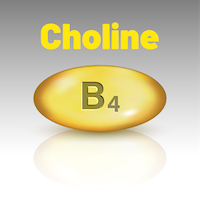While the best defense against fetal alcohol spectrum disorders (FASD) remains avoiding alcohol consumption during pregnancy, research has shown that dietary choline supplementation can reduce at least some of the cognitive and behavioral problems associated with FASD in human and animal models. NRI associate professor Sandra Mooney, Ph.D., studies how alcohol exposure impacts brain development and also how consumption of certain nutrients can counteract some of these effects.
Recently, Mooney and colleagues (Waddell et al., 2020) investigated whether a combination of choline and working memory training would improve cognitive flexibility in a rat model of prenatal alcohol exposure. Working memory underlies learning and problem solving and is often compromised in children with FASD. In this study, rats received prenatal alcohol exposure (mothers were given alcohol) and either choline with training or placebo without training during the rat-equivalence of childhood/adolescence. The same rats, in adulthood, were then tested for learning/memory abilities using behavioral tests and for neural connectivity using functional magnetic resonance imaging (fMRI).
In rats that had been exposed to alcohol prenatally, the choline+training treatment during childhood/adolescence improved cognitive functioning in adulthood. Analysis of the fMRI also showed that prenatal alcohol exposure altered functional connectivity between different regions of the brain. Notably, these results were also sex dependent. Overall, the research reported here suggests that nutritional and cognitive interventions during childhood/adolescence may have long-term benefits for people with FASD.
Waddell J, Hill E, Tang S, Jiang L, Xu S, Mooney SM (2020). “Choline Plus Working Memory Training Improves Prenatal Alcohol-Induced Deficits in Cognitive Flexibility and Functional Connectivity in Adulthood in Rats.” Nutrients, 12(11):3513. Full article link: https://www.ncbi.nlm.nih.gov/pmc/articles/PMC7696837/

